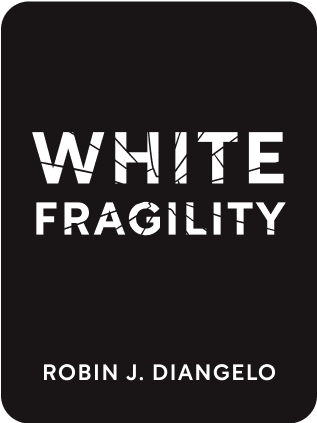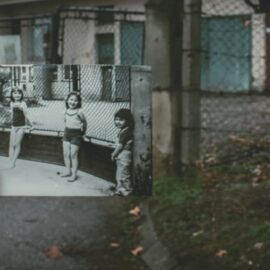

This article is an excerpt from the Shortform summary of "White Fragility" by Robin J. DiAngelo. Shortform has the world's best summaries of books you should be reading.
Like this article? Sign up for a free trial here .
Why is white fragility bad? What are the problems with white fragility?
White fragility is the focus on one’s own lack of culpability rather than seeing you’re playing a role in racism. The problems with white fragility are all related to the perpetuation or defense of racism.
Read on to see the problems with white fragility.
What Are the Problems With White Fragility?
White people are able to deny the presence of racism precisely because they treat it as specific behaviors committed by specific people, rather than the structural phenomenon that it actually is. In this wrong conception of racism, racism functions like an act of criminality. The possibility of it always exists, but it has to be consciously and knowingly “committed” by someone.
Two common manifestations of white deniability (and white fragility) are claims of colorblindness and a professed color celebration, or appreciation of token diversity. They are intended to show that the white speaker is personally free from the social conditioning of white supremacy.
But any analysis of racism should focus on the real victims of it—people of color and, specifically, African-Americans. While other non-white groups have undeniably faced persecution in the United States, black people serve as the ultimate racial “other” for whites. Here are some of the problems with white fragility.
Projection
White people commonly project their own fears and insecurities about themselves onto black people as a means of assuaging their guilt and anxiety about the systems of oppression they maintain. They do this by accusing black people of vices of which white people are, in fact, collectively guilty.
White notions of black laziness, for example, ignore the real history of slavery, in which black people toiled in brutal conditions on sugar and cotton plantations—all while their labor was stolen by white planters. Similarly, white ideas of black people as violent or dangerous overlook the experience of black life in America, which has been marked by brutal violence and oppression at the hands of white people.
One of the problems with white fragility is that it supports these types of conclusions, related to projection.
White Saviors
Anti-black racism is a complex and ever-changing social force that can take on many different forms, at once flexible and durable. It can even masquerade as benevolence in the form of the “white savior” cultural trope, in which black people require the intervention of kind-hearted white people in order to be rescued from circumstances of poverty or oppression.
Such portrayals, common in Hollywood films like Green Book or The Blind Side deny the agency of black people and portray their fates as being inextricably linked to the benevolence and goodwill of white people. Often, these films show a prejudiced white character overcoming their prejudice thanks to an unlikely friendship with a black person who teaches them the error of their ways.
These portrayals, however well-meaning they may be, also inhibit progress on race. They cast racism as an individual vice (ignoring its real, structural nature) and put the onus for overcoming it on black people themselves, who must teach their oppressors why their racist attitudes are wrong. This absolves white people for their culpability in maintaining racism and allows them to shirk responsibility for doing the hard work of challenging it. The problems with white fragility are that it allows for focusing on a white savior rather than confronting the real issue.
Fear of Black Advancement Exacerbates the Problems With White Fragility
Another great source of white fragility is the fear of black advancement or upward mobility. This underlies the centuries-old white contempt for “uppity” black people who dare to step out of line or question the justness of the racial hierarchy.
Any attempts to dismantle or even simply modify white supremacy are lambasted by white people as measures that confer an “unfair” or “undeserved” advantage for black people. Affirmative action in particular is a flashpoint of deep resentment for white people, who believe that it forces companies to hire unqualified black candidates over qualified white applicants.
This is all completely untrue. Affirmative action was implemented in the 1960s to combat the very real and demonstrable job discrimination that African-Americans faced. It only guaranteed that qualified minority job-seekers have access to the same opportunities as other applicants, and it only ever applied to jobs in the public sector. Ironically, white women ended up being its biggest beneficiaries, not people of color.
Nevertheless, white myths and paranoia about the program were the decisive factors in its dismantlement in subsequent decades. Today, it is all but nonexistent. Beyond affirmative action, white people continue to express dismay at black advancement when they:
- Delegitimize protests like the Black Lives Matter movement to end police brutality against black people by responding with claims that “All Lives Matter” (ignoring that black lives in particular are at unique risk from systemic racism); and
- Express contempt for NFL players like Colin Kaepernick who kneel during the singing of the national anthem to protest police violence against minorities.
These attempts by people of color to highlight the racial inequities in American life put white culpability front and center. The reaction by white people shows the problems with white fragility. As we’ve seen, because of their limited conception of racism as a personal character trait, white people collectively take these efforts as a deep affront. The white fragility on display in response to these efforts points to a collective unwillingness on the part of white people to seriously engage with the presence and consequences of white supremacy.

———End of Preview———
Like what you just read? Read the rest of the world's best summary of Robin J. DiAngelo's "White Fragility" at Shortform .
Here's what you'll find in our full White Fragility summary :
- Why white people become defensive when confronted with the idea of racism
- How today's racial hiearchy began in roots centuries ago
- How we as society can gradually overcome our deep racial divides






